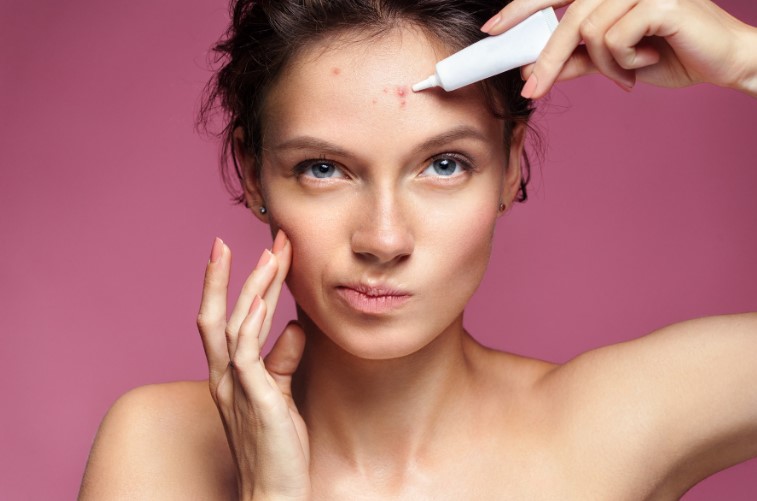Many men experience erectile dysfunction (ED), which is a widespread issue, especially as they get older. The lack of ability to get or keep an erection strong enough for sexual intercourse is what identifies it. High blood pressure (hypertension) is also a prevalent condition that affects many people worldwide, particularly as they get older. Both ED and high blood pressure can have significant impacts on a person’s quality of life, and it’s important to understand the relationship between the two conditions and how to manage them effectively.
Connection between High Blood Pressure and ED
High blood pressure and Erectile Dysfunction are often linked because hypertension can cause damage to the blood vessels that supply blood to the penis, leading to decreased blood flow and ultimately ED. The high pressure in the blood vessels can cause damage to the delicate endothelial lining of the blood vessels, leading to atherosclerosis or hardening of the arteries. This can reduce blood flow to the penis, which is necessary to achieve and maintain an erection. Hypertension can also cause nerve damage that affects the ability to achieve and maintain an erection. High blood pressure can damage the nerves that control blood flow to the penis, making it difficult to achieve and maintain an erection. This can lead to both temporary and long-term ED.
Many of the drugs used to treat hypertension can also cause ED in addition to the direct impact of high blood pressure on erectile function. Medications such as beta-blockers and diuretics are commonly used to treat hypertension but can have negative effects on erectile function. These medications can interfere with the body’s ability to produce nitric oxide, a chemical that is essential for achieving and maintaining an erection.
Guidance for managing ED and High Blood Pressure
1- Consult with a healthcare provider
If you have both high blood pressure and erectile dysfunction, it’s important to talk to your healthcare provider to get an accurate diagnosis and discuss treatment options. Your healthcare provider can help you determine the underlying cause of your ED and high blood pressure and recommend appropriate treatments.
2- Control your blood pressure
One of the most important steps you can take to manage ED and high blood pressure is to control your blood pressure. This can involve making lifestyle changes such as maintaining a healthy diet, exercising regularly, limiting alcohol consumption, and quitting smoking. Also, your doctor might recommend medicines to reduce your blood pressure.
3- Medications for ED
There are several medications available for erectile dysfunction treatment, including sildenafil (Viagra), tadalafil (Cialis), and vardenafil (Levitra). By boosting blood flow to the penis, these drugs make it simpler to get and keep an erection. However, it’s important to note that these medications can interact with some blood pressure medications, so it’s essential to discuss with your healthcare provider before taking them.
4- Lifestyle changes
Making lifestyle changes such as losing weight, exercising regularly, quitting smoking, and reducing alcohol consumption can also help manage ED and high blood pressure. These changes can improve blood flow throughout the body, including to the penis, and can help reduce the risk of cardiovascular disease, which is often associated with both ED and high blood pressure.
5- Penile injections
Penile injections, such as alprostadil, can also be used to treat ED. These injections work by relaxing the blood vessels in the penis, allowing for increased blood flow and an erection. However, as with medication, it is important to talk to your healthcare provider before using this treatment.
6- Vacuum erection devices
Vacuum erection devices are another option for beating ED. These vacuum pumps for erectile dysfunction work by creating a vacuum that draws blood into the penis, allowing for an erection. While this treatment can be effective, it can also be uncomfortable and time-consuming.
7- Shockwave therapy
Low-intensity sound waves are used in the non-invasive treatment of shockwave therapy for ED to increase blood flow to the penis. The treatment includes utilizing a handheld device that generates low-intensity shockwaves onto the penis, which encourages the creation of new blood vessels and enhances blood flow to the penis. This higher blood flow may also result in better erections and general sexual performance.
8- EMTT therapy
Extracorporeal Magnetotransduction Therapy (EMTT) is a non-invasive procedure that was created specifically for treating musculoskeletal pain and other illnesses. When used in conjunction with other technologies, it has been shown to significantly improve men’s sexual health issues.
9- Surgery
Surgery is typically reserved for men with severe ED who do not respond to other treatments. Penile implants or prosthetics can be surgically implanted to help men achieve an erection. These devices are typically reserved for men who have not responded to other treatments or who cannot use other treatments due to other health conditions.
10- Psychological counseling
In some cases, ED may have a psychological or emotional component, such as anxiety or depression. In these cases, psychological counseling or therapy may be recommended to help address these underlying issues and improve erectile function.
Combination therapy
For some men with ED and high blood pressure, a combination of treatments may be necessary to effectively manage both conditions. This may involve a combination of medication, lifestyle changes, and other treatments such as penile injections or vacuum erection devices.
11- Regular check-ups
Regular check-ups with your healthcare provider are important for monitoring your blood pressure and assessing your overall health. This can help identify any changes or issues that may be affecting your erectile function and allow for early intervention and treatment.
It’s safe to say that, high blood pressure and erectile dysfunction are often linked, and it’s essential to manage both conditions to ensure a good quality of life. Managing high blood pressure through lifestyle changes and medication can help improve blood flow to the penis and reduce the risk of ED. Various treatments are available for ED, including medication, lifestyle changes, penile injections, vacuum erection devices, surgery, and psychological counseling. It’s important to consult with your healthcare provider to determine the underlying cause of your ED and high blood pressure and develop an individualized treatment plan.
If you are suffering from ED, then you should pay a visit to https://www.mansmatters.co.uk/ . It is recognized as the Europe’s leading non-invasive men’s health clinic that offers excellent treatments to the men who are suffering from ED and help them rediscover a healthy sex life. MANSMATTERS offers variety of treatments for ED such as shockwave therapy, Tesla chair, Nano Vi Exo and EMTT therapy.






Great Information about Erectile Dysfunction